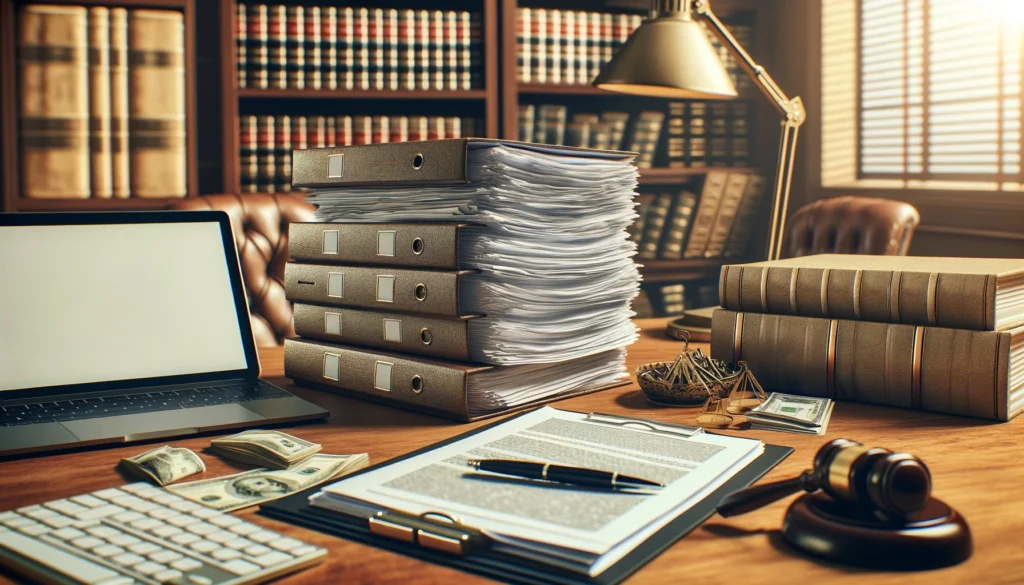
Setting the Stage: The Role of AI in Modern Paralegal Work
Artificial Intelligence (AI) is rapidly transforming the legal profession, particularly in areas requiring efficiency and precision. From automating mundane tasks to enhancing complex research processes, AI holds enormous potential. For personal injury claims, where accuracy is paramount, ChatGPT stands out as a revolutionary tool. It offers an array of capabilities that can help streamline procedures and improve valuation accuracy, empowering paralegals like never before.
Understanding the Basics: Personal Injury Claim Valuation
Personal injury claim valuation is a multifaceted process that involves various key components, including medical expenses, lost wages, and emotional distress. Achieving an accurate valuation is often fraught with challenges such as voluminous data and subjective assessments. Accuracy and efficiency are not just desirable but essential, as even minor errors can lead to significant discrepancies in settlements. The precision needed calls for advanced tools, and this is where AI, particularly ChatGPT, can make a substantial impact.
Also read:
From Mundane to Magical: Daily Tasks Transformed by ChatGPT
Incorporating ChatGPT into daily paralegal tasks can transform mundane activities into efficient processes. Imagine a day where document review, legal research, and client communication are seamlessly integrated. For example, a paralegal can use ChatGPT to quickly summarize lengthy medical reports or draft coherent responses for client queries. This transformative power of AI not only saves time but also enhances accuracy in various application areas. Document review, research, and client communication become more manageable, allowing paralegals to focus on higher-value tasks.
Also read:
Crafting Precision: The Art of Structured Prompts
A fundamental aspect of leveraging ChatGPT effectively lies in crafting precise prompts. Structured prompts are crucial as they guide the AI to deliver accurate and pertinent results. An effective prompt comprises key elements like context, specificity, and clear objectives. Examples of structured prompts for different scenarios include:
- Quick Valuation Checks: “Summarize the medical expenses for a personal injury case involving a broken arm and six months of physical therapy.”
- Detailed Analysis with Contextual Data: “Analyze the impact of chronic back pain on lost wages over ten years, considering the median salary for a construction worker.”
- Comparative Case Studies: “Compare settlements for whiplash injuries involving drivers aged between 30-40 in California from 2015-2020.”
These examples demonstrate the art of precision in prompt crafting, ensuring that the AI delivers valuable insights.
Also read:
Interactive Prompt Gallery: Practical Examples for Paralegals
To bring the concept to life, consider scenario-based prompt examples designed for paralegal tasks:
Scenario 1: Initial Claim Assessment
“Generate an initial valuation for a car accident claim involving a 35-year-old male with two fractured ribs and a concussion.”
Scenario 2: Gathering and Summarizing Medical Reports
“Summarize the key findings from the attached medical report of a 50-year-old female with a herniated disc requiring surgery.”
Scenario 3: Legal Precedent Research
“Identify legal precedents for settlements involving slip-and-fall accidents in grocery stores in Texas over the past decade.”
Template prompts can streamline repetitive tasks and are easily customizable for specific contexts. For optimal results, paralegals should craft prompts meticulously to harness ChatGPT’s full potential.
Also read:
Nuanced Strategies: Enhancing Prompt Efficiency
Advanced techniques can further refine prompt efficiency. Nested prompts and iterative refinement help narrow down AI responses, while leveraging features like ChatGPT’s memory and context-awareness enhances output quality. Balancing automation with critical thinking ensures that while AI handles the heavy lifting, human oversight maintains judgment and accuracy.
Also read:
Turbocharging Workflow: Integrating ChatGPT with Other Tools
ChatGPT can be even more powerful when integrated with existing legal software and research databases. API integrations enable seamless workflow automation, streamlining processes across various tools. Real-world examples show successful integrations that have dramatically improved productivity and accuracy in law firms, proving the utility of a synergistic system combining AI with traditional legal resources.
Also read:
Looking Ahead: Evolving Role of AI in Legal Practice
The future of AI in legal practice promises continuous innovation. Emerging trends suggest enhancements in AI capabilities, offering ever-more sophisticated tools. Paralegals must engage in continuous learning and adaptation to leverage these advances fully. As always, ethical considerations and data privacy remain crucial as technology evolves.
Also read:
Parting Thoughts: Empowering Paralegals with AI Savvy
In summary, the integration of AI, particularly ChatGPT, in personal injury claim work offers transformative potential. Paralegals are encouraged to develop skills and experiment with this technology to maximize its benefits. The power of AI not only optimizes workflows but also fosters a more efficient, effective legal practice.


